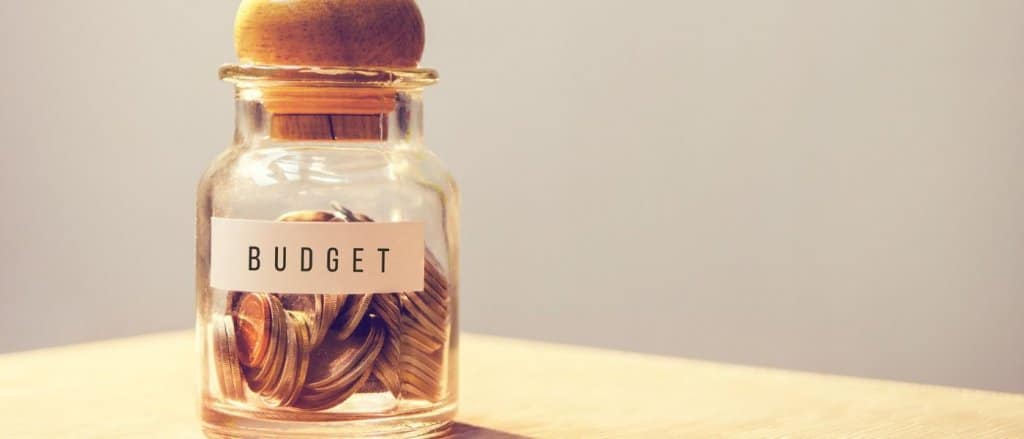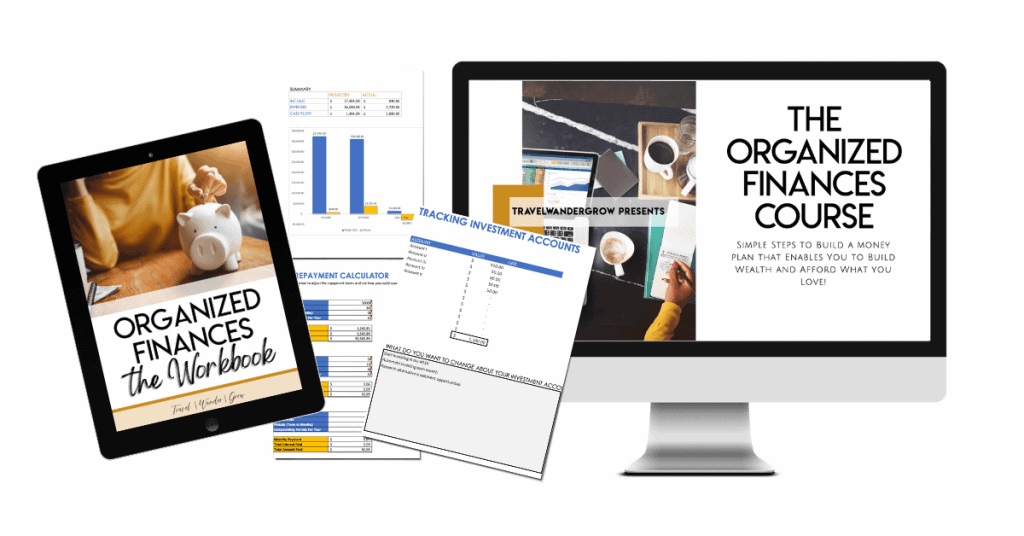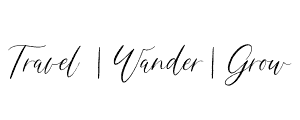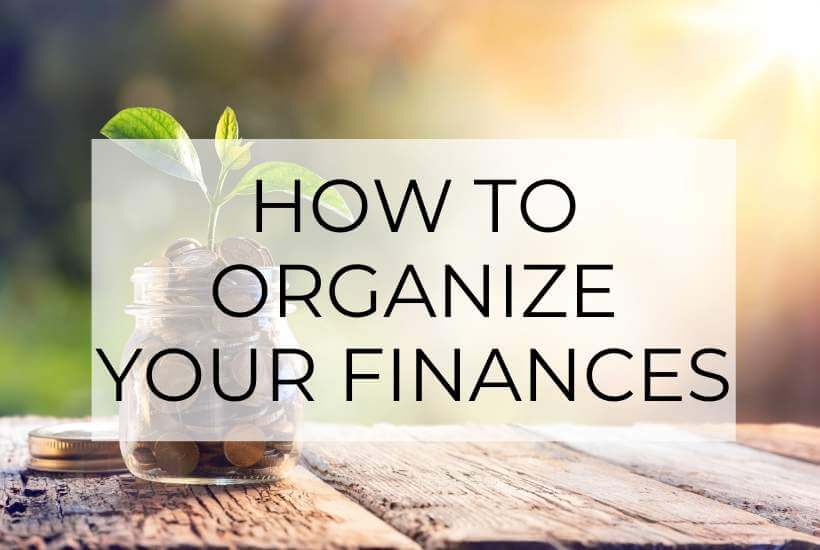How to Organize Your Finances in 4 Simple Steps

Organized Finances are the key to setting yourself up for financial success, and a comfortable retirement. The question many may have is, where should I start? Well you have come to the right place! This post walks through the key ways to organize your finances, so that you can start reducing your financial stresses. We’ll follow a simple 4-step process that you can follow to start getting your finances in order now.
Personal Finance Organization: Why It’s So Important
The organization of your personal finances includes examining all aspects of your money, from bills, to accounts, to spending behavior and then putting it into a budget or spending plan that you can use on a regular basis. The ultimate goal of anyone attempting to organize their finances should be to build wealth for the future. And with organized finances, achieving this goal becomes so much easier.
Key Components of Organized Finances
There are a few key components of organized finances. These include the items that you need to track to have a full view of your financial profile:
- Bills: You should understand the full landscape of all the bills that you are responsible for on a month-to-month basis, whether they are standard or irregular
- Spending Habits: To start the process of organizing your finances, you must do a full review of how you spend money, and what triggers any impulse buying that you may fall victim to
- Income: It’s important that you know where all of your money is coming from, whether that be from your job, side-hustle, or any investments that you have
- Financial Accounts: To have an understanding of where you are from a wealth perspective, you must also track all your financial accounts. This may include checking, savings, or retirement accounts (for example)
Step 1 | How to Organize Your Bills and Budget
Okay, let’s start at the beginning – the first thing that you must do when organizing your finances is tackling your bills and budget. You could argue that these are the most important aspect of your money, because if you don’t have these in order, you can’t progress any further.

How to Organize your Bills
To start organizing your bills, you must first identify all the bills that you have. A good way to do this is to check your email for the bills that you know have. Also, you should include any physical bills that you might have. Common bill categories include:
- Mortgage / Rent
- Utilities
- Storage
- Car Payment
- Debts
- TV / Internet Services
- Cell Phone
A few tips for you as you pull this information together:
- If you think you may forget any bills, you may want to check your credit/debit card statements as a cross-reference
- If you do still have physical bills, I recommend that you make them all electronic – and also set up automatic payments. This saves so much time in the long run
How to Organize Your Budget
To organize your budget you’ll need to take your bills into account, as well as your income and your spending habits. As you document your spending behavior, you should outline the categories that you feel most comfortable with allocating your resources to. Write all of these categories down and make sure that they are comprehensive.
I recommend that you should keep this more simple than complicated. This will save you the need to make many modifications in the long run.
If you’d like information on how I organize my budget (and have found great success as a result!) Check out my post on the 50/30/20/ Budget Spreadsheet.
Step 2 | How to Organize Your Money For Retirement
When you think about organizing your money for retirement, what you should be thinking about is building wealth. In a sense, everything that you do with your money today should be focused on getting you ready for retirement.
Questions that you should ask yourself as you do this should be:
- Am I saving enough money each month?
- Am I investing my money regularly?
- Do I have a plan to pay down my outstanding debts?
If you ask yourself these questions, and already know that the answer is “no” to any of them, you need to decide today what you will change to help you meet your saving and investing goals.
Something that many people don’t know today is that investing is actually the key to having enough money for retirement. You can read more about that here.
It’s highly likely that your savings will not even match the rise in inflation if you do not invest. So putting this into your plan for retirement is the key to reaching your future retirement goals.
Setting Financial Goals
I’ll also point out that here is where you should take the time to set all your near-term and long-term goals. What changes do you want to see today? What changes do you want to see in the future?
It is also a good idea to understand how much money you’d like to make each year once retired OR the lump sum amount that you’d like in the bank when you do retire. That gives you an excellent place to start from.

Step 3 | Making a Budget / Spending Plan
Okay, so now that you’ve organized your bills, have defined your budget categories, and savings goals it’s time to actually write out your budget. I realize that there are many different methods for doing this, and the one you like most will vary by your personal preference. See below for the three ways to make your budget:
How to Organize Your Money in Excel
My favorite way of organizing my own personal finances is by using Excel and/or Google Sheets. When building your budget spreadsheet, here are a few considerations that you should keep in mind:
- Income: Add a section to track your income on your spreadsheet; most folks do this right at the top of the page
- Expenses: Pull down the expense categories that you developed in Step 1, and put them into your spreadsheet. Play with them as you need to make them as simple as possible. I recommend adding these in below your income
To make your spreadsheet the most useful, I recommend adding in a few additional features:
- Automated Calculations: Use the SUM function to make sure that your financials are all calculated automatically – it SUCH a timesaver!
- Charts: I recommend incorporating charts to track your spending against your income so that you can visually see how you’re doing. It can “shock” you into reeling in your spending habits, if you know what I mean
If you read that and thought, “I’m no spreadsheet expert, it would take me forever to build this.” Don’t worry – you’re in luck! I’ve built a budget spreadsheet that you can use for free – check it out below!
How to Organize Your Money with Apps or Software
The next best way to organize your money is by using apps or computer software. These days there are just SO many options out there, but that’s great because it gives you a chance to use the best software for you. Some leaders in the market include:
- Quicken: This is one of the OGs in the online personal finance tools space. It focuses on automatic expense allocations.
- You Need a Budget (YNAB): This software is less automated than many, but let’s you set financial goals to better manage your spending. It is accessible on both desktops and an app.
- Everydollar: This software gives you some control over the categories that you add in the tool for expenses, but does not have the same level of features as the YNAB tool.
These are just a few of the options that exist today, but each has its own benefits. Using Apps or Software is my second favorite method of organizing finances, but the major downfall of these tools is that they aren’t as flexible as using spreadsheet tools. For example, if I want to allocate the cost for a trip to the month in which the trip occurs, it is often very difficult to do this.
How to Organize Your Money in a Binder
So binder organization is what I consider the “old school” method of budgeting. This is when you write down your budget by hand and use a calculator to put everything together. You can do this either by hand on a lined sheet of paper, for example. Or you might use budget printables, which are pretty much everywhere on Pinterest these days :).
If you decide to take the binder route, I recommend using tabs to divide out the months. I’ll caveat, this is not my favorite method of budgeting as it gives you so much opportunity for incorrect calculations, and can be the most laborious / time intensive. But, if you aren’t budgeting at all, this is still a good way to get started.

Step 4 | Key Principles for Keeping Your Finances Organized
Once you’ve organized your finances, it’s important to KEEP them that way! Why do all the work if you don’t plan to stick with it? Here are two of my favorite tips:
- Keep a Budgeting Schedule: Set up a regular time to update your budget on a regular basis.
- Keep Your Budget Contents Updated: If you encounter new expenses (e.g, you moved to a new apartment, you bought a new car), add them to your budget immediately. Don’t let anything fall off your radar!
In Summary | How to Organize Your Finances
I hope you found this post on how to organize your finances helpful! As a recap, here are the four steps that we’ve covered:
- Organize Your Bills and Budget
- Organize Your Money for Retirement
- Make Your Budget / Spending Plan
- Keep Your Finances Organized
The Organized Finances Course
If you’d like more detailed instruction and support with getting your finances in order, check out our course Organized Finances. In this course, you’ll learn how to:
- Improve your Money Mindset & Happiness
- Money Basics: Banks, Savings, and Credit Cards
- Understanding Your Personal Finances
- Organizing Your Finances
- Building Wealth (Getting Richer)

Learn more about the Organized Finances course here! (And get it for 50% off!)


This is great! When your finances are organized it’s so much easier to stay on top of your money. And it’s also important for reaching your financial goals because without a plan, you won’t get far at all.
I could not agree more!